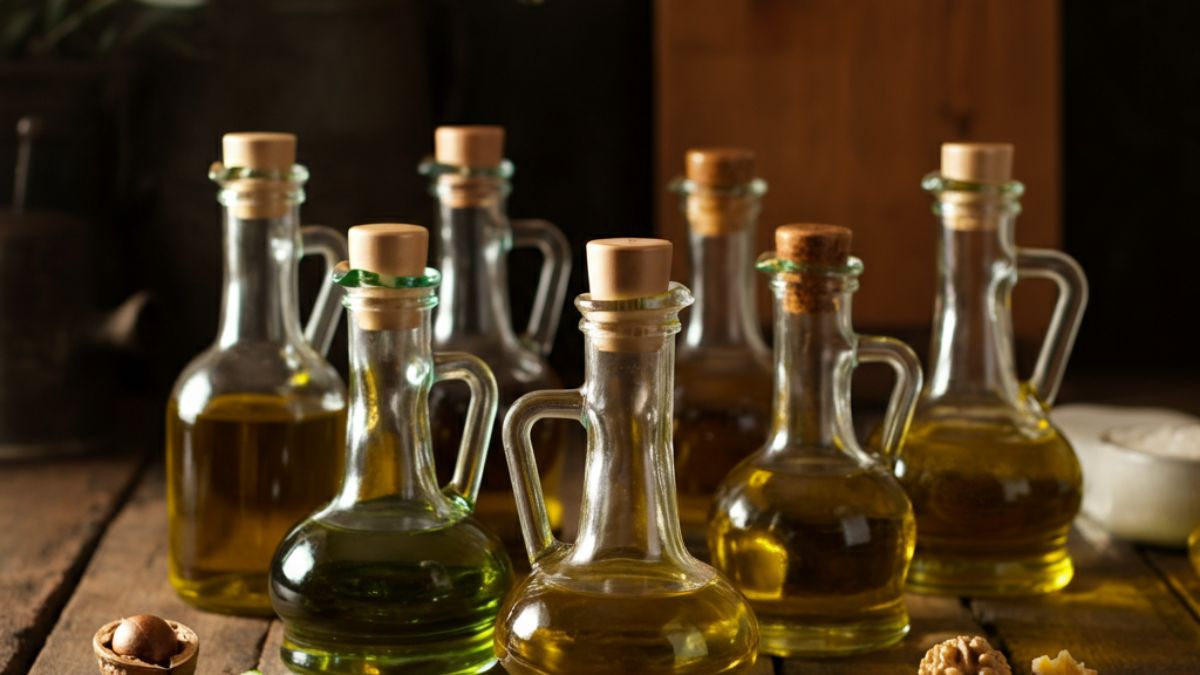Cooking oils are an essential part of our diets, but not all oils are created equal—especially when it comes to heart health. High cholesterol levels can put a strain on your cardiovascular system, increasing the risk of heart disease. But the good news is that the right choices in your kitchen can make a big difference.
This blog dives into five heart-healthy cooking oils that not only help lower cholesterol levels but also add flavor and nutrition to your meals. Whether you’re looking to sauté, roast, or drizzle, these oils can support your heart health without sacrificing taste.
What Makes a Cooking Oil Healthy?
Before we jump into the specifics, it’s important to understand what makes a cooking oil heart-healthy. The type and balance of fats in an oil are crucial factors for managing cholesterol. Healthy oils tend to:
- Be low in saturated fats (which raise bad LDL cholesterol).
- Be high in unsaturated fats (which boost good HDL cholesterol while reducing bad LDL cholesterol).
- Contain essential nutrients like antioxidants and omega-3 fatty acids to support cardiovascular health.
The goal is to reduce “bad” fats in your cooking and replace them with oils that contain heart-healthy fats. And the following five options fit the bill perfectly.
1. Olive Oil
Olive oil is a kitchen staple, and for good reason. Packed with monounsaturated fat, olive oil is well-known for its heart-friendly properties and ability to reduce inflammation. Studies suggest that using olive oil in place of saturated fats can lower LDL cholesterol while keeping HDL cholesterol levels steady.
Best Ways to Use Olive Oil
- Drizzle it raw over salads, steamed vegetables, or whole-grain bread.
- Cook gently with it—it’s ideal for sautéing over medium-to-low heat.
For maximum health benefits, opt for extra virgin olive oil. It’s less processed and preserves more antioxidants compared to refined versions.
Nutritional Bonus
Olive oil is rich in antioxidants like vitamin E and polyphenols, which contribute to its cholesterol-lowering and anti-inflammatory benefits.
2. Avocado Oil
Avocado oil is gaining popularity for its versatility and nutrient-packed profile. Like olive oil, it’s high in monounsaturated fats, which help improve cholesterol levels and reduce the risk of heart disease. Plus, its mild taste works well in a variety of dishes.
Best Ways to Use Avocado Oil
- Use it for high-heat cooking like roasting or pan-frying due to its high smoke point (around 520°F).
- Add it to smoothies or drizzle it over your bowls for a creamy, nutty flavor.
Nutritional Bonus
Beyond its heart-healthy fats, avocado oil boasts lutein, an antioxidant that supports eye health—bonus benefits for your overall well-being!
3. Flaxseed Oil
Flaxseed oil is a unique option for those looking to boost omega-3 fatty acid intake naturally. Omega-3s are essential fats known for their positive effects on heart health, including lowering triglycerides and improving arterial flexibility.
Best Ways to Use Flaxseed Oil
- Use it cold as it isn’t heat-stable. Drizzle it over salads, mix it into dips, or add it to your morning smoothie.
Nutritional Bonus
Flaxseed oil is rich in alpha-linolenic acid (ALA), an omega-3 fat associated with reducing systemic inflammation and cholesterol levels.
4. Canola Oil
Canola oil has been recognized as one of the healthiest oils due to its high content of monounsaturated fats and omega-3 fatty acids. It’s also low in saturated fats, making it a solid choice for managing cholesterol levels.
Best Ways to Use Canola Oil
- Great for everyday cooking like stir-fries and frying, thanks to its subtle taste and high smoke point.
- Incorporate it in baking recipes for a lighter texture in muffins, cakes, or bread.
Nutritional Bonus
Canola oil contains phytosterols, plant-based compounds that block cholesterol absorption in the body, further aiding cholesterol management.
5. Walnut Oil
Walnut oil is a lesser-known gem in the world of healthy oils. It’s rich in polyunsaturated fats, particularly omega-3 and omega-6 fatty acids, making it excellent for lowering triglycerides and promoting heart health.
Best Ways to Use Walnut Oil
- Best used raw to preserve its delicate nutty flavor. Try it as a salad dressing or drizzle it on steamed vegetables.
- It’s a flavorful addition to homemade pestos or marinades.
Nutritional Bonus
Walnut oil also contains antioxidants like ellagic acid, which may reduce oxidative stress and inflammation in the body.
Tips for Cooking with Heart-Healthy Oils
Switching to heart-friendly oils is a great step toward better cholesterol management. But a few tips will maximize their benefits while preserving flavor and nutrients:
-
Mind the Smoke Point
Each oil has a specific smoke point, which is the temperature at which it starts to break down. Overheating oils can reduce their health benefits and release harmful compounds. Olive and avocado oils are great for medium-to-high heat cooking, while flaxseed and walnut oil are best used raw.
-
Store Properly
Light, heat, and air can cause oils to go rancid, reducing their health benefits. Store oils in cool, dark places, and opt for dark glass bottles to retain freshness.
-
Rotate Oils
Each oil offers unique health benefits, so incorporate a variety of oils into your cooking to broaden your nutrient intake.
Small Changes, Big Impacts
Choosing the right cooking oil is a simple yet powerful step in managing high cholesterol levels. By incorporating these nutrient-packed oils into your diet, you can support your heart while enjoying delicious, flavorful meals.
Want to take it further? Pair your healthy oil choices with a diet rich in fruits, vegetables, whole grains, and lean proteins for maximum cardiovascular benefits.
How Will You Start?
Which healthy oil will you try first, or are you already using one of these? Share your favorite recipes or tips for heart-healthy cooking below!
FAQs
What is the healthiest oil to cook with?
The healthiest oil depends on the cooking method and your dietary needs. Olive oil, particularly extra virgin olive oil, is a popular choice for its heart-healthy monounsaturated fats and antioxidants. For high-heat cooking, avocado oil is a great option due to its high smoke point.
Can I use the same oil for all types of cooking?
Not all oils are suitable for every method of cooking. Some oils, like coconut oil or avocado oil, can handle high heat, while others, such as flaxseed oil, are best used raw or as a finishing oil. Using oils within their recommended smoke points ensures their flavor and health benefits remain intact.
How should I store cooking oils?
To maintain freshness and prevent oils from going rancid, store them in a cool, dark place away from heat and sunlight. Consider using dark glass bottles to protect the oil from light exposure. Refrigeration is recommended for oils like flaxseed or walnut oil.
How much oil should I use to stay healthy?
Even healthy oils are calorie-dense, so moderation is key. Using oils sparingly and balancing them with a diet rich in whole, unprocessed foods will help maintain a healthy diet.
What are some creative ways to use healthy oils?
Healthy oils can be used in a variety of ways. Drizzle olive oil over roasted vegetables, use avocado oil for stir-fries, or add flaxseed oil to smoothies. Experiment with different oils to enhance the flavors of your dishes while reaping their nutritional benefits.











